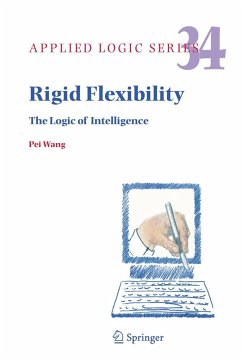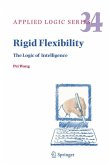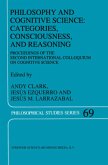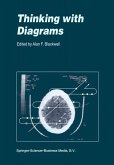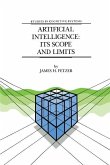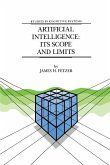This book provides the blueprint of a thinking machine.
While most of the current works in Artificial Intelligence (AI) focus on individual aspects of intelligence and cognition, the project described in this book, Non-Axiomatic Reasoning System (NARS), is designed and developed to attack the AI problem as a whole.
This project is based on the belief that what we call "intelligence" can be understood and reproduced as "the capability of a system to adapt to its environment while working with insufficient knowledge and resources". According to this idea, a novel reasoning system is designed, which challenges all the dominating theories in how such a system should be built. The system carries out reasoning, learning, categorizing, planning, decision making, etc., as different facets of the same underlying process. This theory also provides unified solutions to many problems in AI, logic, psychology, and philosophy.
This book is the most comprehensive description of this decades-long project, including its philosophical foundation, methodological consideration, conceptual design details, its implications in the related fields, as well as its similarities and differences to many related works in cognitive sciences.
While most of the current works in Artificial Intelligence (AI) focus on individual aspects of intelligence and cognition, the project described in this book, Non-Axiomatic Reasoning System (NARS), is designed and developed to attack the AI problem as a whole.
This project is based on the belief that what we call "intelligence" can be understood and reproduced as "the capability of a system to adapt to its environment while working with insufficient knowledge and resources". According to this idea, a novel reasoning system is designed, which challenges all the dominating theories in how such a system should be built. The system carries out reasoning, learning, categorizing, planning, decision making, etc., as different facets of the same underlying process. This theory also provides unified solutions to many problems in AI, logic, psychology, and philosophy.
This book is the most comprehensive description of this decades-long project, including its philosophical foundation, methodological consideration, conceptual design details, its implications in the related fields, as well as its similarities and differences to many related works in cognitive sciences.
From the reviews: "Rigid Flexibility presents a new theory of cognition. As such it is devoted to the general research for Artificial Intelligence (AI), in contrast to a focus of other AI research that is focusing on solving specific reasoning problems such as planning or learning for example. ... The review of the principles and assumptions underlying the various streams of AI research make this book very interesting to read and enable the reader to easily compare the presented theory with other existing approaches." (Jana Koehler, Zentralblatt MATH, Vol. 1122 (24), 2007)

